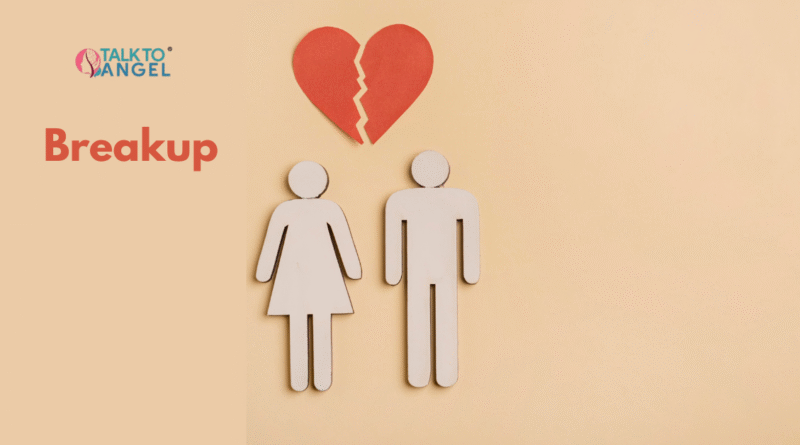Coping with Breakup: A Path to Emotional Recover
One of life’s most emotionally taxing situations might be a breakup. Whether mutual or one-sided, the end of a relationship can trigger a whirlwind of emotions—sadness, anger, confusion, and even depression. Understanding the psychological impact of a breakup is essential to navigating the healing process with awareness, compassion, and support.
In this blog, we explore how breakups affect mental health, identify coping mechanisms, and highlight the importance of professional psychological support through platforms like Psychowellness Center and TalktoAngel.
Understanding the Emotional Toll of a Breakup
A breakup is not merely the end of a relationship—it is often the loss of shared dreams, emotional investment, and personal identity formed within the relationship.
Common emotional reactions include:
- Shock and denial
- Sadness and despair
- Guilt or self-blame
- Anger or resentment
- Anxiety about the future
- Low self-esteem
These reactions are not only normal but are also signs that your mind and body are processing loss.
Why Breakups Hurt So Much: The Psychological Explanation
Breakups are painful because humans are social and emotional beings. The brain interprets emotional pain in a similar way to how it interprets physical pain, according to neuroscience research. A study published in Proceedings of the National Academy of Sciences found that viewing pictures of an ex-partner activated the same brain regions as physical injury.
Furthermore, being in love releases dopamine and oxytocin—chemicals associated with pleasure and bonding. When the relationship ends, the sudden drop in these chemicals creates symptoms similar to withdrawal, intensifying the sense of loss.
Common Mental Health Challenges After a Breakup
Although many people bounce back from a breakup with time, others may face mental health concerns such as:
- Depression: Persistent sadness, fatigue, and loss of interest in activities
- Anxiety: Constant worry, restlessness, or panic attacks
- Obsessive thoughts: Replaying past moments or stalking an ex-partner online
- Sleep disturbances: Insomnia or oversleeping
- Loss of appetite or emotional eating
Recognizing these signs early is crucial to prevent long-term psychological distress.
Healthy Coping Strategies After a Breakup
Healing from a breakup is not about rushing through emotions but processing them mindfully. Here are effective ways to cope:
1. Acknowledge Your Feelings
Allow yourself to feel the grief, anger, and confusion. Suppressing emotions only delays healing.
2. Establish Boundaries
Avoid contact with your ex-partner, especially in the early stages. This helps reduce emotional dependency and allows for self-reflection.
3. Lean on Social Support
Spend time with supportive and upbeat friends and family.
4. Practice Self-Care
Focus on activities that promote mental and physical wellness—exercise, healthy eating, hobbies, or meditation.
5. Journaling
Writing about your thoughts and feelings can help process the breakup and identify patterns in emotional reactions.
Moving On: Rebuilding After Heartbreak
Healing entails growing and learning from the relationship, not forgetting it. Breaking up may be a game-changer for:
- Reconnecting with your passions
- Strengthening self-identity
- Gaining emotional independence
- Making healthier relationship choices in the future
With the right tools and support, heartbreak can become a powerful lesson in self-love and growth.
When to Seek Professional Help
While many people gradually recover from a breakup, others may need professional psychological support, especially if emotional distress lasts beyond a few weeks or interferes with daily life.
You have to think about consulting a counselor or therapist if you encounter:
- Persistent feelings of hopelessness or despair
- Difficulty performing daily tasks
- Suicidal thoughts
- Obsessive or compulsive behaviors related to the ex-partner
Professionals in mental health are essential in this situation.
Professional Support for Emotional Recovery
A breakup can trigger overwhelming emotions, and sometimes self-help alone isn’t enough. Seeking professional support can be essential for healing.
Psychowellness Center offers therapy for emotional distress, specializing in depression, anxiety, addiction, marriage, and relationship counselling in Delhi, through both in-person and online sessions in a confidential setting.
TalktoAngel for online counselling connects users with licensed mental health professionals who provide personalized, evidence-based therapy for breakup recovery, anxiety, and emotional support—anytime, anywhere.
Taking that first step toward professional help can make a significant difference in your recovery journey.
Conclusion
A breakup may feel like the end, but it can also mark a new beginning. Remember that you’re not alone, even if the suffering is genuine and the healing process is unique to you. Seeking support—from loved ones or the best therapists in India—can make a world of difference.
You can get support at every stage from sites like Psychowellness Center and TalktoAngel, recognised as the best mental health wellness clinic in Delhi. Never be afraid to get in touch and take back your emotional and mental health.
References:
- American Psychological Association. (2023). Coping with a breakup or divorce. https://www.apa.org/topics/divorce/breakup
- Fisher, H. E. (2010). The brain in love. TED Talk. https://www.ted.com/talks/helen_fisher_the_brain_in_love
- Sbarra, D. A., & Ferrer, E. (2006). The structure and process of emotional experience following nonmarital relationship dissolution. Journal of Personality and Social Psychology, 91(6), 1133–1149.
- LeFebvre, L. E. (2017). Phases of breakup recovery: From decision to letting go. Journal of Social and Personal Relationships, 34(1), 54–78.



